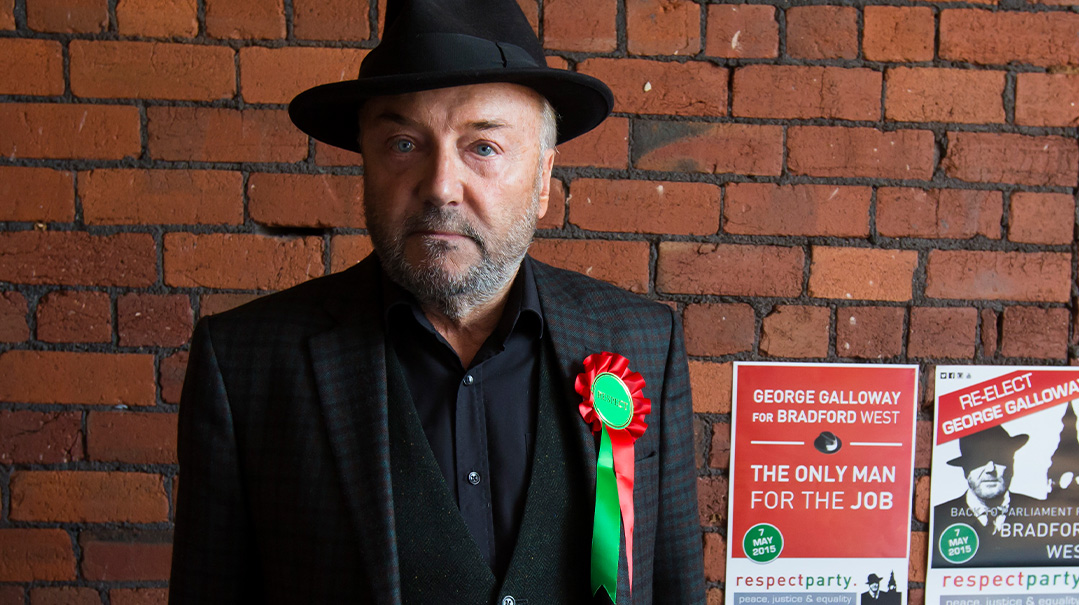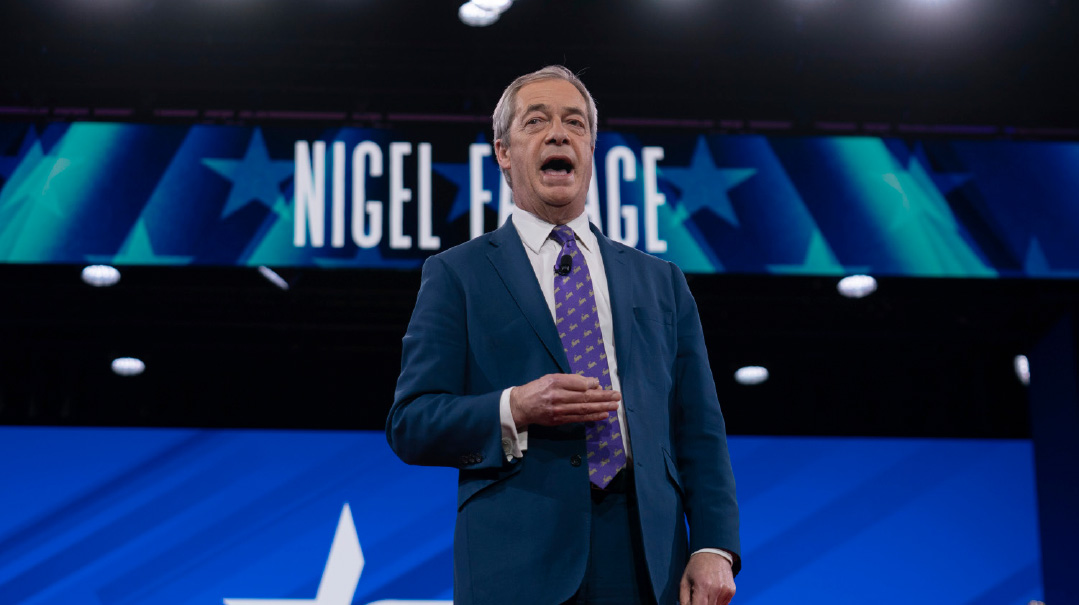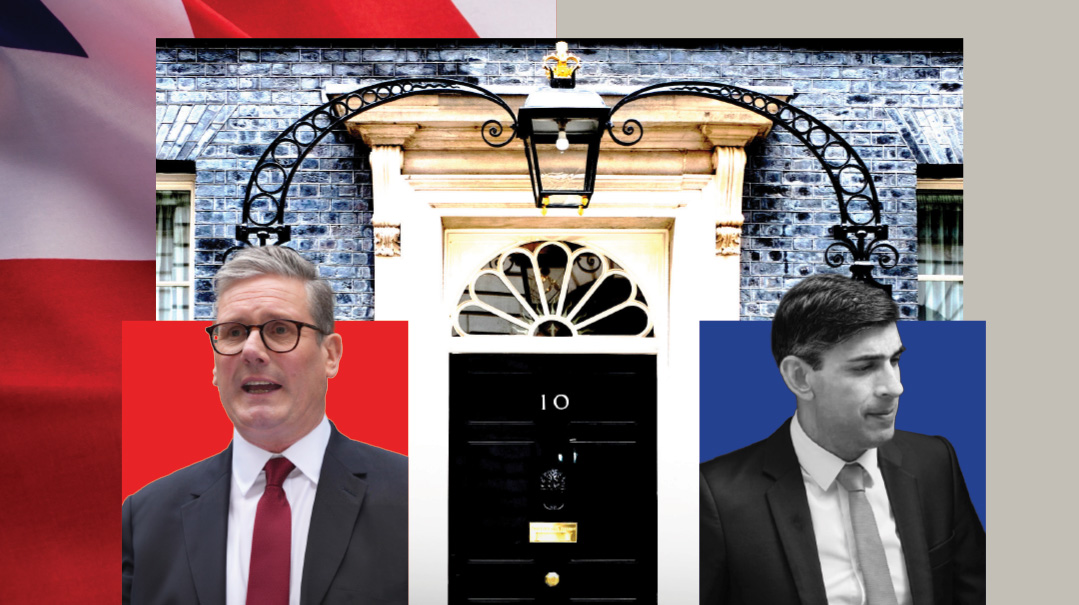A Galling Victory
| March 5, 2024Anti-Israel provocateur George Galloway exploits a gap in Labour to finagle a return to Parliament

Photo: AP Images
A
lthough the war in Gaza is being fought thousands of miles away from London’s Houses of Parliament, political events in the UK laid bare the direct effects that the conflict is having on British politics.
In what has been called a “seismic political upset,” a by-election in Rochdale, North Manchester — triggered by the death of Labour incumbent Sir Tony Lloyd — saw veteran political disruptor, Israel hater, and radical left-wing firebrand George Galloway voted back in after a 12-year break, overturning Labour’s lead and handing the party the biggest drop in support at a by-election for 70 years.
Galloway’s political résumé is the story of a controversial and divisive figure who, over four decades, has been elected to Parliament seven times to represent voters in four cities — and bouncing between three different political parties in the process. With the Rochdale by-election victory, he again bucked political norms, precipitating an extraordinary electoral event in which his miniscule Workers Party of Britain trounced the big two, Conservatives and Labour — their combined share of the vote plummeting by over 60 percentage points.
But while campaigning candidates normally focus on local issues to gain support, Galloway ran his campaign almost exclusively on a pro-Palestinian platform. For decades a vigorous promoter of the Palestinian cause, Galloway found a willing audience in Rochdale, home to a substantial Muslim population.
Running a campaign rich in pro-Palestinian imagery and rhetoric, Galloway’s campaign photo pictured him standing outside his headquarters, a large Palestinian flag attached to the railings. Outside one mosque after Friday prayers, he asked worshippers whether on “judgment day” they would be able to tell their children and grandchildren that they had opposed Keir Starmer’s position on Gaza.
But although Galloway sought to capitalize on local antipathy toward Israel’s actions in Gaza to win his seat, he was also the unwitting beneficiary of an internal Labour party problem in Rochdale — one that also relates directly to the Gaza war. Labour’s own candidate for the Rochdale seat, Azhar Ali, got himself embroiled in controversy when he was recorded saying that Israel had allowed the October 7 attacks by Hamas to take place as a pretext to invade and take control of Gaza.
Once again finding themselves at the center of an anti-Semitism storm, Labour withdrew support for Ali and, being so close to election day, were disallowed by electoral law from fielding an alternative candidate. Lacking support, Ali’s vote collapsed and Galloway steamed to victory.
For Labour leader Keir Starmer, the Rochdale fiasco is yet another unwanted Gaza-related headache in a general election year in which he hopes to end 14 years of Tory party rule and gain the keys to 10 Downing Street. His party is a big tent, with many on the left critical of what they perceive as his soft stance on the Gaza conflict and his reluctance to call for an immediate cease-fire until recently. All the while, Starmer continues his efforts to rid the party of Corbynite anti-Semitism ahead of an expected election in the second half of 2024.
Since late 2022, Sir Keir’s opposition Labour party has been consistently polling around 20 percentage points ahead of the ruling Conservatives. Although that didn’t stop Galloway, with characteristic bombast, from predicting doom and gloom for his former party on his big night in Rochdale. Approaching the podium once the votes were counted — and aware that he had just presided over a mini political earthquake — Galloway didn’t waste a moment in taking a swipe at Starmer.
“Keir Starmer,” began the political rabble rouser, “This is for Gaza. You have paid, and you will pay, a high price for the role that you have played in enabling, encouraging, and covering for the catastrophe presently going on in occupied Palestine in the Gaza Strip.”
Most concerning for British Jews is the fact that the journey from Rochdale to the chareidi strongholds of Broughton Park and Prestwich, home to thousands of Jewish families, takes less than 20 minutes.
Dave Rich of Community Security Trust (CST), who liaise with the government on security matters relating to the Jewish community nationally, says that while Galloway’s return has caused a lot of concern in the local community, it’s how he will use his newfound influence in Parliament that is the real concern.
“If this is anything like his previous runs, we won’t see much of him locally, because he doesn’t do the local MP bit very well,” says Dave Rich.
Galloway has a reputation for parachuting into constituencies where he thinks he can get a quick win. Then, job done and seat in Parliament secured, he all but disappears from the local scene. Indeed, some voters have accused him of using Rochdale — and the Gaza conflict — as his springboard for re-election.
“The worry is that now, with a seat in Parliament, if he starts repeating his obnoxious views in the House, that would be shocking and pose a real challenge to Parliament as to whether that’s deemed acceptable,” says Dave Rich.
Rich is referring to Galloway’s penchant for spreading conspiracy theories, not to mention his idolization of dictators and autocrats. He met Iraq’s leader Saddam Hussein in the 1990s, famously telling him, “Sir, I salute your courage, your strength, your indefatigability.”
More recently, he was a presenter on the Kremlin-backed news channel RT, giving him airtime to dwell on conspiracy theories about the war in Ukraine.
And he hasn’t held back about the October 7 massacres either, saying that they were created by Israel as an excuse to invade Gaza. He’s also been known to talk about Israel’s supposed hold over British politics, in classic conspiracy theory language.
While Galloway’s victory is highly concerning, commentators have pointed out the bizarre set of circumstances that caused it, warning against being too quick to draw conclusions as to wider political implications. The Labour Party insists this is a short-term blip for Keir Starmer, saying that the only reason Galloway was victorious was because of Labour’s inability to field an opponent against him. For his part, Starmer has told voters he will field a “first-class candidate” for Rochdale in the upcoming general election, hoping upon hope to oust the renegade Galloway.
While Starmer’s language is intended to reassure voters, he may need to go further to calm his own MPs in constituencies with large Muslim populations. They will no doubt have been jolted by Galloway’s victory, considering what the prospect of facing off against candidates standing on a pro-Palestinian platform might mean for their re-election chances.
Political commentator Sir John Curtice told the BBC that these MPs may be looking to Sir Keir perhaps to toughen his stance on Israel in order to try to head off a repeat of Galloway’s victory elsewhere. Equally, he’ll have to work overtime to assure Jewish voters — who abandoned the party over Corbyn — that his own party can be trusted when it comes to Israel.
Regardless of whether Galloway’s return to Parliament will be noisy and disruptive but short-lived, or whether he’ll manage to hang on beyond the general election, his presence rings alarm bells.
“We thought we’d seen the back of him,” says Dave Rich, “but for now he’s back again and we’re going to have to deal with whatever that involves.”
(Originally featured in Mishpacha, Issue 1002)
Oops! We could not locate your form.







